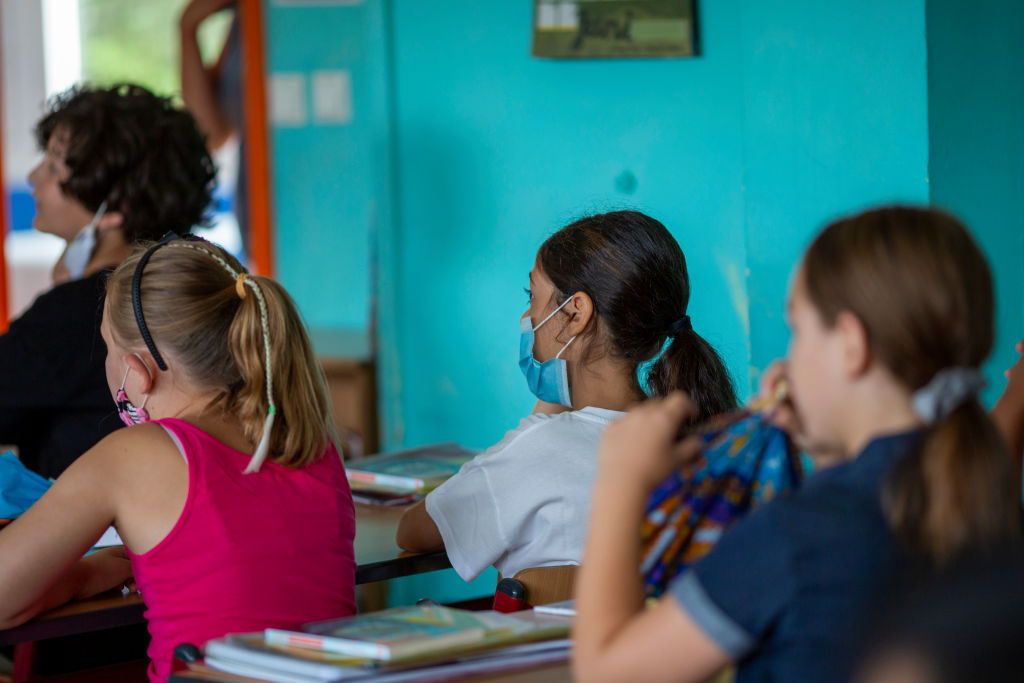12:37
Brief
News Briefs
Government programs mostly responsible for record low child poverty, report says
Despite all the economic dislocation caused by the coronavirus pandemic, child poverty and uninsurance were at record lows last year, U.S. Census data show.
And those lows are largely the result of large government interventions, the Center on Budget and Policy Priorities said in a statement that was published Tuesday.
The percentage of Americans lacking health insurance fell from 17.2% in 2020 to a record-low 8.3% in 2021. And when accounting for taxes and non-cash benefits, child poverty fell to 5.2% in 2021.
The Center on Budget and Policy Priorities, a non-partisan, anti-poverty organization, concluded that it was the lowest level of child poverty in 55 years. It also concluded that government programs aimed at fighting covid were largely responsible.
“In both 2020 and 2021, the federal government provided large-scale assistance to families and individuals in the face of an unprecedented crisis,” said the statement by the organization’s president, Sharon Parrott. “Strengthened economic and health security policies coupled with a recovering economy and rising employment resulted in historic declines in poverty and boosted health coverage, despite the economic and health crises caused by the pandemic.”
Among those policies was continuous coverage protection for those enrolled in Medicaid, the federal-state insurance program for the poor. It’s a vital program in Ohio, where it covers 29% of the overall population and more than half of the births in the state.
As part of the federal government’s covid-relief measures, states received additional money not to kick people off of Medicaid as long as a federal health emergency is in place.
Health and Human Services Secretary Javier Becerra on July 15 renewed the emergency for another three months. And some in Ohio worry that if it’s allowed to expire next month, thousands of Ohioans could be improperly hustled off of the program.
Another factor cited for declining rates of uninsurance was expanded subsidies for people buying health insurance on marketplaces created by the Affordable Care Act.
The U.S. Centers for Medicare and Medicaid Services reported that enrollments in the Obamacare marketplaces jumped by 21% between 2021 and 2022. In Ohio, they climbed by a whopping 29%, to 260,000, or nearly 3% of the state’s under-65 population.
The rate of uninsured Americans has continued to drop since hitting a record low last year, reaching 8% in the first quarter of this year, the U.S. Department of Health and Human Services reported.
With expanded subsidies written into the Inflation Reduction Act signed in August by President Joe Biden, they’ll last through 2025 and benefit more than 160,000 Ohioans.
If anything, the impact of the federal government’s anti-covid measures on child poverty was even more stark. One such measure was a child tax credit that provided families up to $300 a month per child during the last six months of 2021.
“The Child Tax Credit expansion drove the large reduction in child poverty between 2020 and 2021, Census data show,” said the statement by the Center on Budget and Policy Priorities. “In the absence of the expansion, child poverty would have fallen to 8.1%, rather than 5.2%, and some 2.1 million more children would have lived in families with incomes below the poverty line.”
However, the credit expired at the beginning of the year and Sen. Joe Manchin, D-W.V., torpedoed legislation that would have, among other things, extended it.
Now some Democrats, led by Sen. Sherrod Brown, D-Ohio, are trying to revive those credits by requiring them in exchange for extending an expiring part of the 2017 Trump tax cuts that allows corporations to write off claimed research expenses.
“I cannot imagine the Senate will give big tax breaks to big companies and to wealthy people without taking care of kids first,” Brown, chairman of the Senate Banking Committee, told Business Insider last week.
This story was originally published by the Ohio Capital Journal, a States Newsroom affiliate.
Our stories may be republished online or in print under Creative Commons license CC BY-NC-ND 4.0. We ask that you edit only for style or to shorten, provide proper attribution and link to our website. AP and Getty images may not be republished. Please see our republishing guidelines for use of any other photos and graphics.





